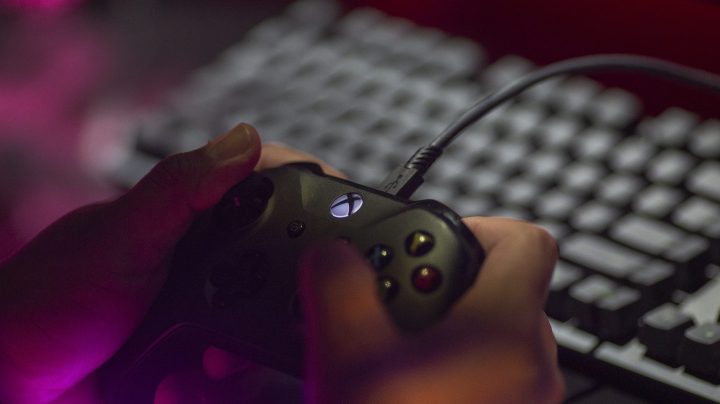
Older gamers say the industry doesn’t design with them in mind
Older gamers say the industry doesn’t design with them in mind

When you think about video gamers, someone over 50 might not be the first person who comes to mind. But when AARP held its first summit for the game industry earlier this spring, the organization pointed out that a quarter of video gamers in this country are 50 and over, and they account for $5 billion a year in game spending on everything from consoles to apps. That’s just a fraction of overall U.S. spending on video games, which last year was $56 billion.
But the number of older players keeps going up, and some see a missed business opportunity here, especially as seven out of 10 older gamers don’t think the industry designs games with them in mind, according to AARP.
Celia Pearce has been studying older gamers for years. She teaches game design at Northeastern University. She said unlike the game industry, Hollywood has recognized the market power of older people.
“There are so many TV programs for and about older adults now, and it is baffling to me that the game industry is not taking the hint,” she said.
Pearce is part of a new research group at Northeastern called Games for Life. It wants to bridge the gap between what older players want and need, and the game industry, which is dominated by people under 35.
Take game controllers, which require dexterity — they’re hard to use for anyone with a repetitive strain injury or arthritis, Pearce said.
And there’s another thing: “Tiny, tiny fonts — we can’t read them! I always tell my students, please make a bigger font size, nobody over 30 can read a 0.5 font size,” she said.
She added that older people don’t just opt for brain teasers, they like a variety of games, “including very story-heavy games like adventure games.”
Alex Pang can relate. He has been a gamer for a long time. The first one he tried “was literally the first video game: Atari’s Pong,” he said.
Today, at 58, he’s still a big fan of the “Star Wars” games. But he also enjoys quick games like Wordle on his phone.
“It takes maybe two minutes to play, is engaging and then it’s done,” he said. “I don’t have to learn new controls.”
Or take the time to familiarize himself with a whole new fantasy world.
Kenny Rosenblatt is CEO of Arkadium, which makes word and puzzle games. The company now focuses solely on older gamers — what he calls grown-up gamers.
“We knew we needed to differentiate ourselves, and there was nobody in the entire gaming business who explicitly said they want the grown-up gamer to be their primary demographic,” he said.
Rosenblatt said his gamers play to stay sharp — and to stay social. He said players have asked the company to design more multiplayer games that they can play on a phone, tablet or computer.
“They were really looking for ways to connect to other people through games,” he said.
He added that most of them are in their sixties and seventies, with some in their eighties.
Pang said he’ll likely still be playing games at that age.
“So long as they’re available and I can find ones I like, why not?”
He said games engage a part of his brain nothing else does. And they’re fun.
There’s a lot happening in the world. Through it all, Marketplace is here for you.
You rely on Marketplace to break down the world’s events and tell you how it affects you in a fact-based, approachable way. We rely on your financial support to keep making that possible.
Your donation today powers the independent journalism that you rely on. For just $5/month, you can help sustain Marketplace so we can keep reporting on the things that matter to you.

















